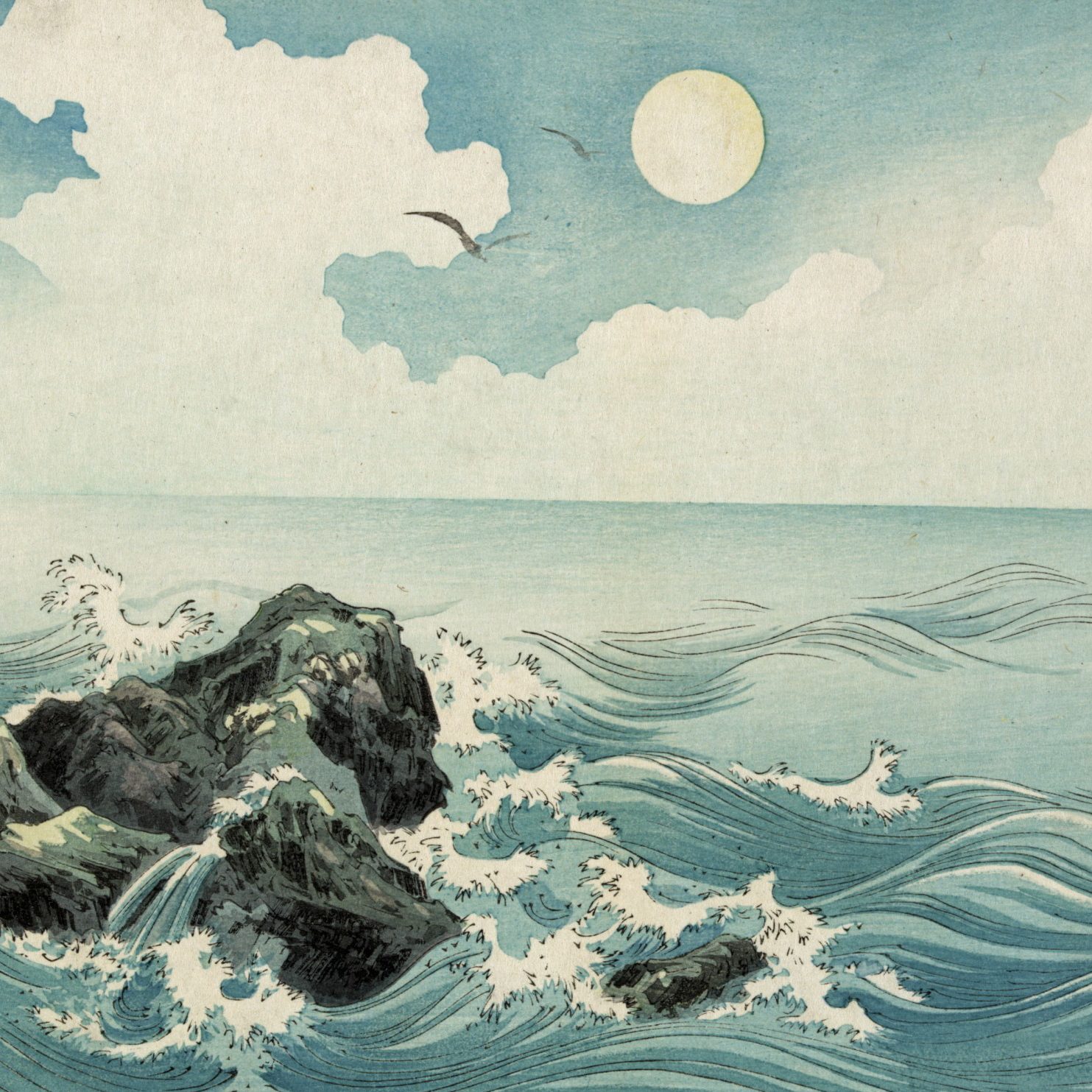
Katya can hold her breath for over seven minutes. She’d practiced alongside us in the pool. Up to her chin, she kneeled in the shallow end and took a deep inhale and long slow exhale, so long it seemed impossible her lungs had gathered that much air, not balloons for birthday parties there below her ribcage, but hot air balloons, enough to attach a basket and float over hills. Her heart slowed, something went unfocused in her eyes, she took a final pull, and down she went.
Women who give birth in bathtubs know that after their babies’ heads emerge it can take twenty minutes for the rest of the body to follow. The babies breathe under water while they wait for their mothers’ final push because they’ve been breathing under water all along. We thought about this when we practiced, the way we used to be able to breathe.
Katya walked unsteadily on solid ground, a stride less forward moving than side-to-side, a flat-footed wobble, like all of land was a rocking boat on whitecaps. Otherwise, elegant. Broad shoulders, narrow hips, and the gentlest voice you’ve heard, like seaweed in the shallows. She wanted us to learn, she was there to teach, but most of all she wanted to make her lungs take more. Which is to say, she wanted to make a deeper dive.
In the ocean, Katya dives. She attaches a weight around her neck, one pound, and head-first plunges. Treading water by the boat, we watch her slow her heart, go blank, and slip into the ocean. She kicks like mermaids do, her lungs packed with air enough to last the journey. It’s darker where she goes, and colder. The sea was our first home, we know the history. When we were fishes, its squelch and boil were too much, so we started our slow haul toward shore, our gooey stagger into life on land. We’ve forgotten most of what we used to know about the deep. Were there sharks down there? Octopuses? Can you see the souls of the drowned, whose lives are marked by stones above bodiless graves on land? She wouldn’t say.
“Have you ever touched the bottom?” we asked.
“What bottom?”
We knew these were the wrong questions, but we didn’t know the right ones.
“How strong is the ocean?” we asked.
“Between the ocean and us, you know who the strongest is,” she said.
We watch her dive until she’s gone. No one wears a stopwatch, but we know the shape of a minute. Four go by, then five. Waves slap the side of the boat. We laugh and talk and wonder what we’ll have for dinner. Six minutes, six and a half. We’ll be able to see her soon. Seven. Seven ten. We grow quiet. Seven forty. Does anyone see her? Eight. Eight fifteen. She’d neared nine in the pool, but we know there are currents down below, underwater winds strong enough to whip you around and spin you so you don’t know which way is surface and which way sand. Eight fifty, and we start diving. Two minutes deep, three, our lungs burn, and we come gasping through the surface. Eleven minutes. Eleven forty. We swim, dive, return. We tread water by the boat. We scan the sea.
Twelve minutes now and we know she’s been absorbed, filled her lungs with infinity again, the way we all did before the end of that original swim, when we emerged wailing, bloody, gasping at a place so cold and suddenly so unwet. She’s gone deep as she could go. At some point, there’s no coming back.
We climb back on board and wrap ourselves in towels. Small puddles form around our feet as the ocean drips from us. The boat sways, a cradle. We lean against the rails, but there isn’t anything to see except an endlessness of waves and the bright rip of sun swelling and peaching on its way down. The ocean catches the light and flings it back in blazing fluid bands. We taste the salt on our lips. One of us yells her name. Another says, “Just gone.” Otherwise we say nothing and keep our backs toward shore.
There are ghosts down there below the surface, we don’t know the count. There are questions we still need answers to. Will we dive again? We will. Not yet. We know the risks. We don’t know how deep it is or how dark. We live on land. And we watch the sun make its own plunge toward a place that we can’t see. It doesn’t drop into the ocean, not like we do. It doesn’t disappear. After all, we see the way it sometimes makes Earth’s shadow on the moon. Each of us, each one, feels the rise and fall of our chests as we pull the air inside us and let it out again.
Nina MacLaughlin is the author of Hammer Head, published by W.W. Norton in 2015, and Wake, Siren, a re-telling of Ovid’s Metamorphoses told from the perspectives of the female figures who are transformed, forthcoming from FSG in November, 2019. Having worked as an editor at the Boston Phoenix and as a carpenter, she’s written for the Paris Review Daily, the Believer, the Los Angeles Review of Books, the Wall Street Journal, and is a columnist for the Boston Globe. She lives in Cambridge, Massachusetts.